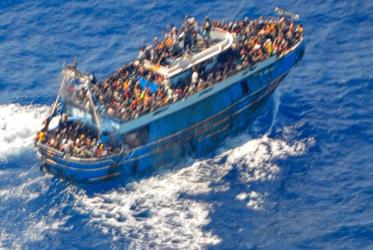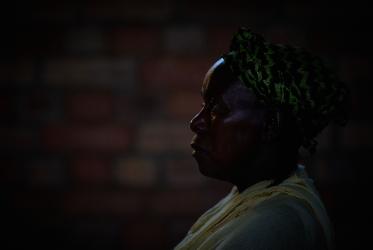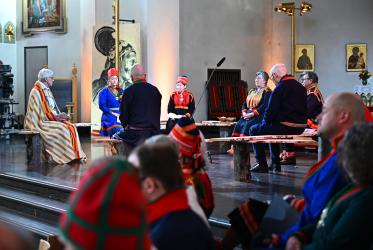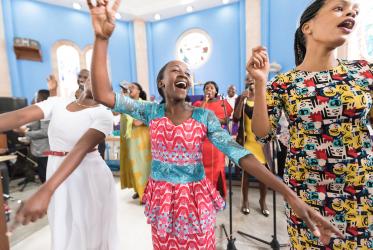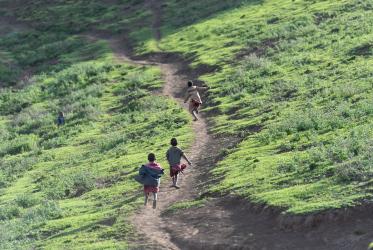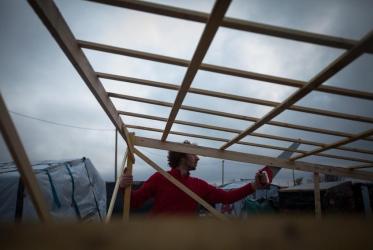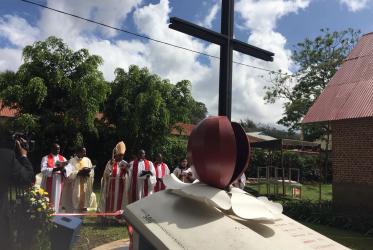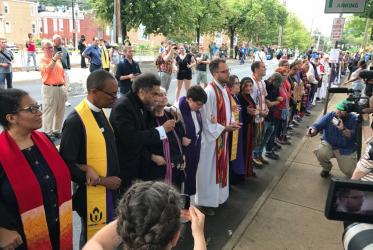Displaying 1 - 20 of 35
Church of Sweden apologizes to Sámi people, this time in Sápmi
27 October 2022
How will the Arusha Call change the world?
20 May 2019
Fr Alexi - a peacemaker in Syria
21 December 2018
#WCC70: Children in the Ecumenical Movement
20 December 2018
WCC president for Europe: “Develop local dialogue”
22 October 2018
How can you help refugees?
11 October 2018
Indigenous youth want their voices heard
08 March 2018
WCC joins Tanzanian service observing Reformation anniversary
03 November 2017
Presbyterian leaders: racism in USA is “pernicious poison”
31 August 2017
